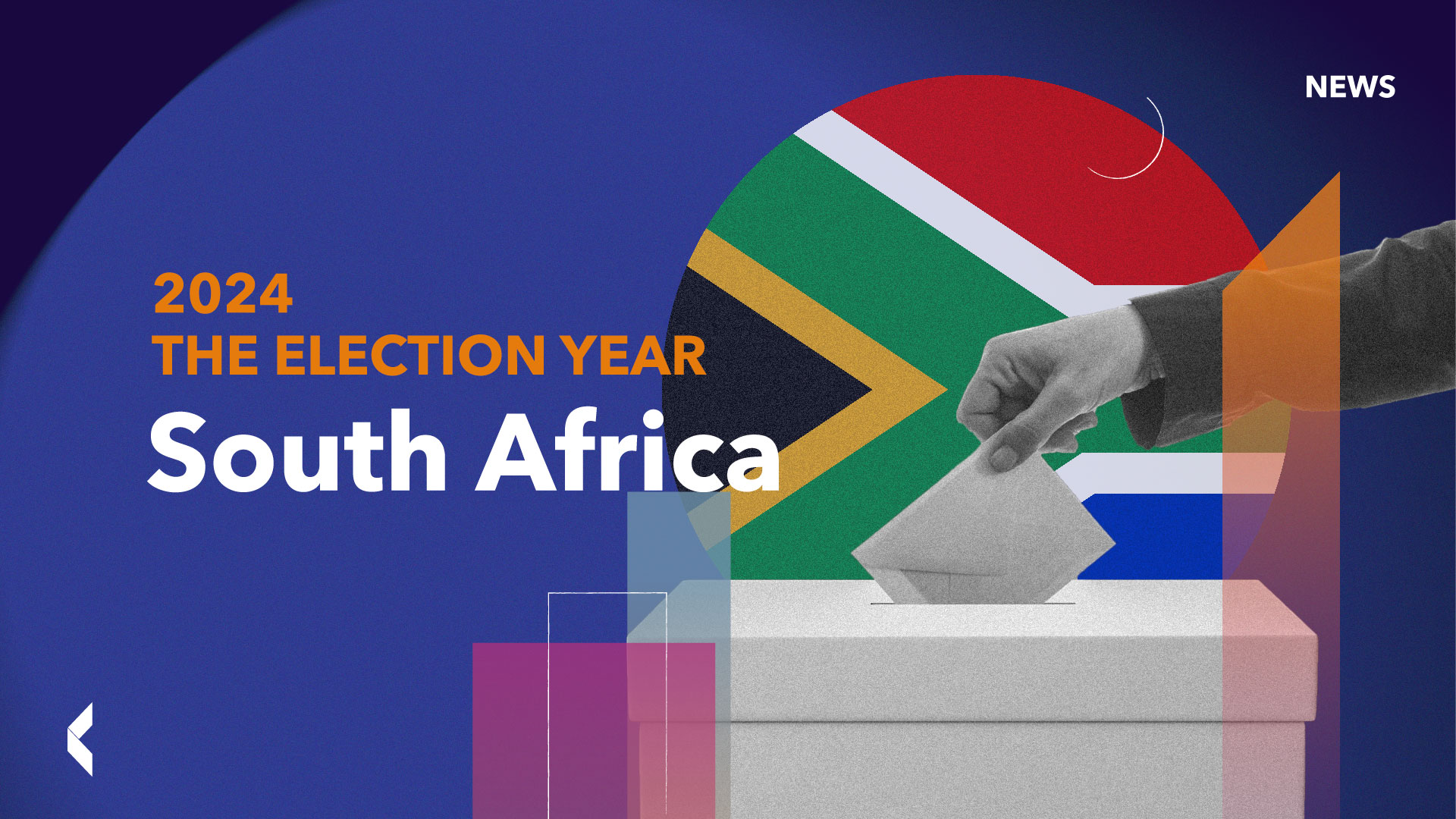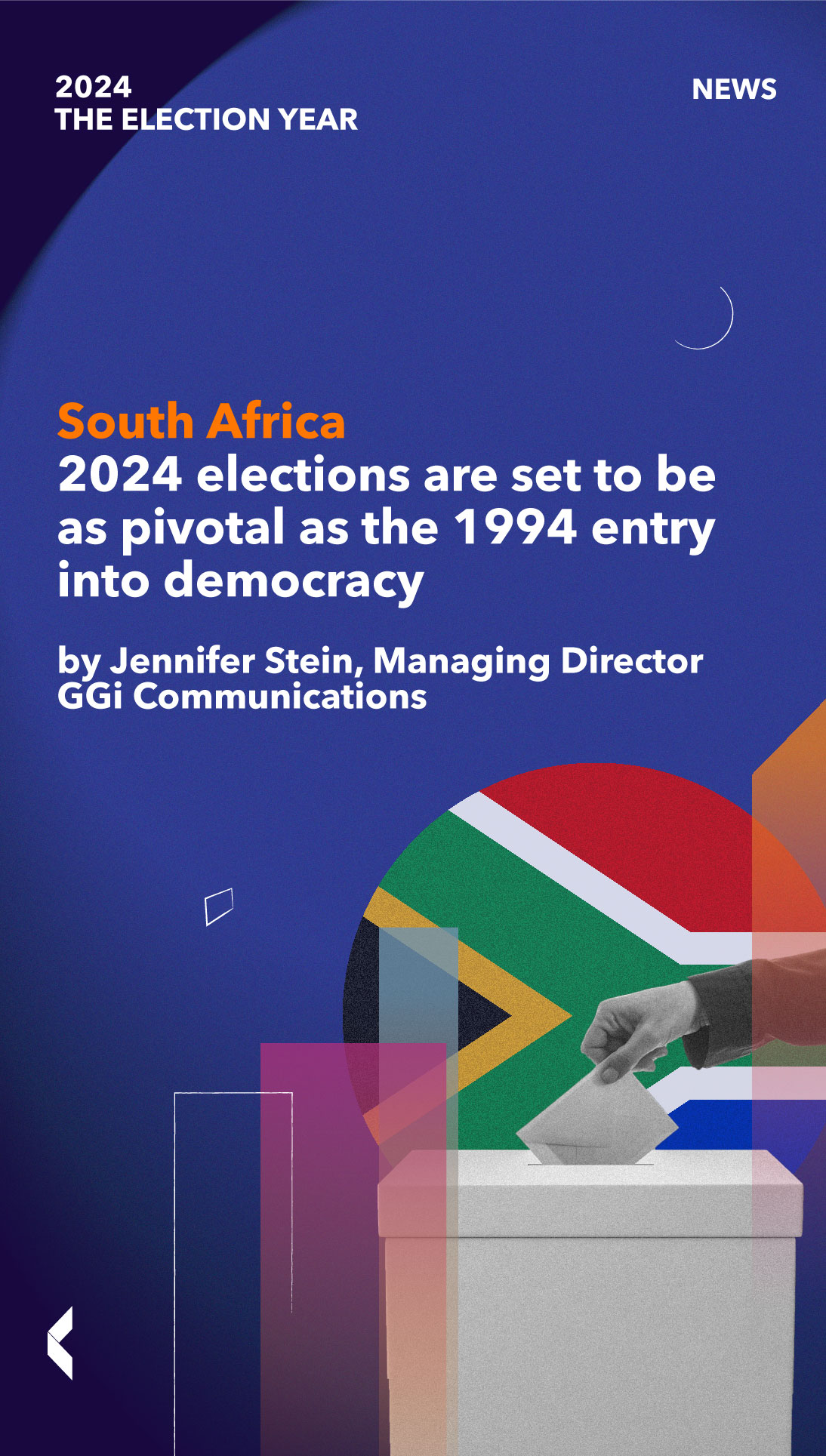30 years ago, South Africans flooded to polling stations to vote in the country’s first free and fair election. Of the many enduring images from those heady days in 1994, it’s the ones of millions of patient voters waiting in long snaking queues for the opportunity to make their mark on democracy. It heralded the rainbow nation, a term coined by Archbishop Desmond Tutu to describe post-apartheid South Africa, and it was elaborated upon by President Nelson Mandela who addressed the assembled crowd in Pretoria that it was a time when “all South Africans, both black and white could walk tall, a rainbow nation at peace with itself.”
South Africa at a crossroads
Mandela headed the African National Congress, an organisation that shifted from liberation movement to political party. As liberators from apartheid, the ANC, for 30 years, has shaped the country’s political landscape and has always held a significant electoral position.
Yet South Africa approaches the 2024 national and provincial elections as a country finding itself at a crossroads. These elections echo the transformative spirit of 1994 as South Africans find themselves in a pressing need for positive social, economic, and political change. Critical issues across all demographics and regions are driving the 2024 elections as the most decisive since 1994: economic inequality, crime, land ownership legacy disputes, disastrous state healthcare, corruption, high unemployment (especially amongst the youth) and a continued energy crisis affect all citizens and will influence the priorities of voters and politicians alike.
While the ANC has enjoyed dominance since 1994, several opposition parties are contending its power, with polls suggesting South Africa will face a historic turning point as the ANC, which faces a gradual decline in support, could lose its majority for the first time since coming to power. Analysts say this election could be a watershed moment when the ANC slips below 50% of the vote and opinion polls predict that South Africa is heading for a coalition government for the first time.
That would force the ANC into a coalition – a first for South Africa – to stay in government and keep Cyril Ramaphosa as president. There’s a very small chance the ANC may be out of government completely.
Who are the key players?
The ANC once commanded 70% of the vote and was almost untouchable in South African politics. It was revered as liberator, led the anti-apartheid movement, and propelled South Africa from the system of forced racial segregation into democracy.
But the deep and broad socio-economic problems faced by South Africa’s 62 million-strong population mean that the ANC can no longer ride on its reputation coattails. It is widely believed that the ANC has failed to significantly improve the lives of millions of South Africa’s poor black majority during its 30-year rule, yet it enjoys significant historical loyalties.
The main opposition leader, the Democratic Alliance (DA), which governs with an absolute majority in the Western Cape province, is advocating an agenda to “save South Africa“, promising rapid restructuring within 100 days of an election victory.
Smaller parties are also vying for the attention of the electorate. Build One South Africa (BOSA), Rise Mzansi and Action SA, which are led by former DA or ANC politicians, are targeting a burgeoning black middle class, while the radical left-wing Economic Freedom Fighters (EFF) are propagating nationalisation and land expropriation. The Inkatha Freedom Party (IFP), which is particularly popular with the Zulu community, is vying with the ANC for supremacy in the province of KwaZulu-Natal, a traditional Zulu stronghold (the Zulu tribe is the largest, representing 24% of the population). Newcomer party MK, led by ex-President Jacob Zuma, a left-wing populist party founded in December 2023, is making inroads into typical IFP territory, and on the opposite end of the spectrum is the Freedom Front Plus, a right-wing political party with a largely Afrikaans-speaking white following.
The possibilities
In a complex and ever-changing landscape, the months and weeks leading up to the elections have been characterised by a combination of factors; a volatile and changing political landscape, shifting political alliances, regional uncertainties, the importance of the female electorate (women comprise 55.24% of registered voters) and voter apathy, all of which will play crucial roles in determining the outcome of this historic election.
Voter apathy among the youth has long been a cause for concern. A survey conducted by the Human Science Research Council showed that the youth are not apathetic but don’t vote due to a lack of trust in politicians, poor socio-economic conditions, and a belief that their individual vote will not make a difference.
Voter apathy can make its mark in other ways: over 13 million eligible voters have not registered for these elections. If they banded together and voted for one party or person, they would collectively have the power to unseat the ANC.
Polls indicate that these elections may be the tipping point that will see a reduction in the ANC’s percentage of the vote to below 50% for the first time since 1994, leading to a multi-party government. Analysts and media have offered numerous viewpoints on coalition scenarios. Some are positive, some are negative, some propose significant change while others believe the status quo will remain as is.
As South Africa nears the election date, against this backdrop of political volatility and uncertainty with political parties ramping up last-minute campaigning, the stakes are high in a country characterised by political and socio-economic flux. South Africa’s path for the next five years will be directed by the verdict decreed by the ballot papers.

